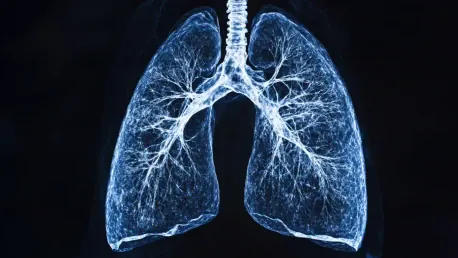
The healthcare domain is witnessing a remarkable shift with the introduction of "TBorNotTB," a state-of-the-art clinical decision support system (CDSS) specifically designed for the evaluation of suspected tuberculosis (TB) cases in hospitals. The primary function of TBorNotTB is to aid

The transformative impact of technology on public health initiatives and personal health management is undeniable. Advanced tools such as artificial intelligence (AI), big data analytics, wearable devices, and telemedicine are now pivotal in tracking disease outbreaks, personalized health

Recent research presented at the 2025 Society of Thoracic Surgeons (STS) Annual Meeting has shed light on the survival benefits of anatomic lung resections, specifically lobectomy and segmentectomy, for patients diagnosed with stage 1A non-small cell lung cancer (NSCLC). Utilizing data from the STS

Clinical trials are the backbone of medical advancements, but they face a persistent challenge: participant adherence. Non-adherence can skew results, impact outcomes, and undermine the effectiveness of health solutions. Enter digital adherence tools, which are revolutionizing the landscape by

The transformative potential of AI-powered self-triage tools in healthcare is becoming increasingly evident. Imagine a world where smartphones act as the frontline against illness, capable of assessing symptoms, offering personalized advice, and guiding patients to appropriate care with

Imagine a world where antibiotics are so precisely targeted that they only attack harmful bacteria, leaving beneficial microorganisms unharmed and reducing the risk of antibiotic resistance. This scenario may not be as far-fetched as it seems, thanks to the pioneering work of researchers at the